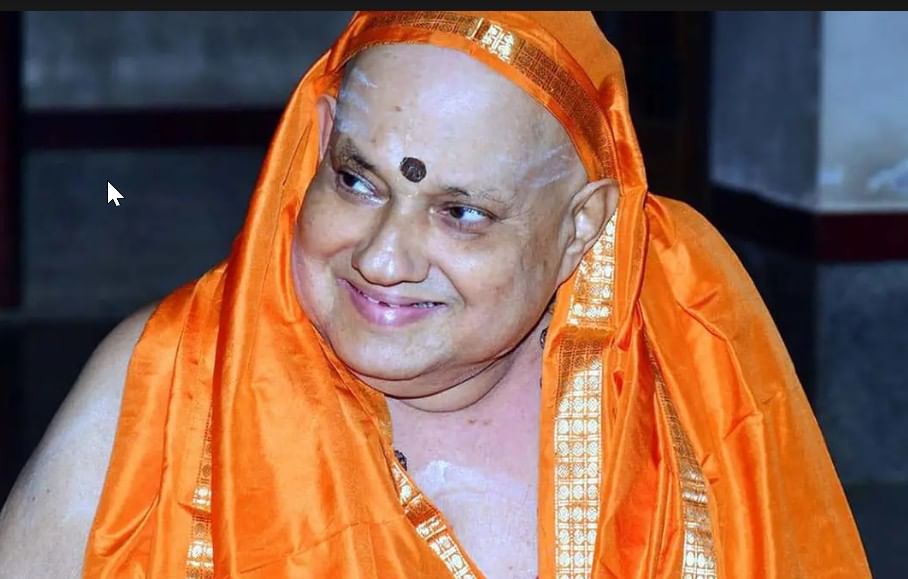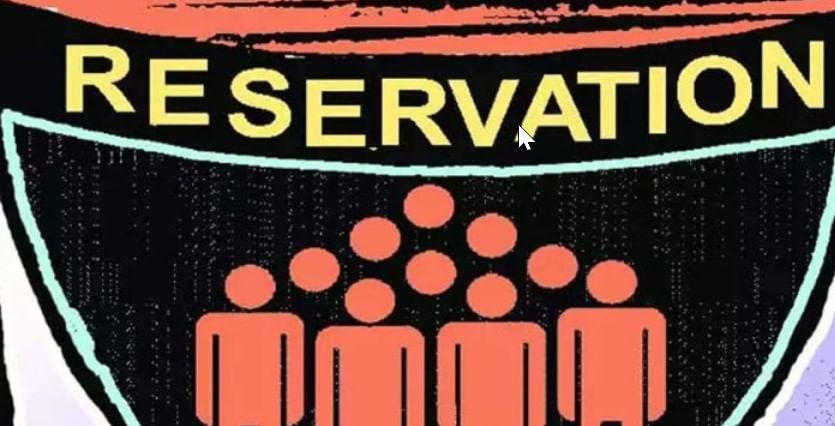Constitutional Laws | Legal Reasoning for CLAT PDF Download
Golaknath vs State of Punjab, 1967
Issue: Whether any part of the Fundamental Rights provisions of the Constitution could be limited by an amendment to the Constitution.
Held: In 1967, a bench of eleven judges of the Supreme Court ruled that Parliament could not curb any of the Fundamental Rights, as they hold a supreme place in the Constitution. Amendments that take away or abridge these rights, guaranteed under Part III (Articles 13, 368), were deemed impermissible. The Court emphasized that Fundamental Rights are essential to the Constitution’s core, protecting individual liberties against state overreach. This decision aimed to preserve the Constitution’s integrity but was later modified by Kesavananda Bharati vs State of Kerala, 1973, which introduced the basic structure doctrine, allowing limited amendments while protecting the Constitution’s core features.
Kesavananda Bharati vs State of Kerala, 1973
Issue: Whether the ruling of the Supreme Court in the Golaknath case was correct.
Held: The Supreme Court held that Parliament’s amendment power is complete and can extend to all articles, including Fundamental Rights (Article 368). However, seven of thirteen judges ruled (six dissented) that amendments cannot alter the Constitution’s basic structure, such as democracy, secularism, judicial review, or federalism. The basic structure represents elements that, if changed, would destabilize the Constitution’s identity. Overruling Golaknath’s absolute bar, the Court balanced parliamentary authority with constitutional integrity, setting a landmark precedent for future amendments, as seen in cases like Minerva Mills and In Re: Article 370.

Minerva Mills Ltd. vs Union of India, 1980
Issue: Whether clauses (4) and (5) of Article 368, inserted by the 42nd Amendment, granting unlimited amendment powers, were valid.
Held: The Supreme Court struck down clauses (4) and (5) of Article 368, which allowed Parliament to amend the Constitution without judicial scrutiny. Building on Kesavananda Bharati, the Court held that judicial review is a fundamental part of the Constitution’s basic structure, ensuring checks on parliamentary power. These clauses violated the balance between amendment authority and constitutional limits, undermining democratic principles. The ruling reinforced the judiciary’s role in protecting the Constitution’s core, influencing cases like In Re: Article 370, where amendments were reviewed for basic structure compliance.
Maneka Gandhi vs Union of India, 1978
Issue: Whether the right to travel abroad is part of Article 21’s right to liberty and if procedures restricting it must be fair.
Held: The Supreme Court expanded Article 21’s “personal liberty” to include the right to travel abroad, ruling that any law restricting liberty must follow a fair, reasonable, and just procedure (Articles 14, 19, 21). The case arose when Maneka Gandhi’s passport was impounded without reasons. The Court held that “procedure established by law” under Article 21 must align with principles of natural justice, overturning restrictive interpretations. This landmark decision broadened Article 21’s scope, influencing rights like privacy (Puttaswamy) and shaping 2024-2025 travel and liberty cases.
M.C. Mehta vs Union of India, 1987
Issue: What is the liability of enterprises engaged in hazardous or inherently dangerous activities causing harm?
Held: The Supreme Court ruled that companies operating hazardous activities, like chemical plants, are strictly and absolutely liable for any harm, such as gas leaks, regardless of negligence (Law of Torts). Compensation must follow the deepest pocket theory, where larger firms pay more based on their capacity. Arising from the Bhopal gas tragedy context, the decision established strict liability principles, ensuring victim compensation. It influenced environmental jurisprudence, including 2024-2025 Delhi pollution cases, reinforcing corporate accountability for environmental and public harm.
Mohd. Ahmed Khan vs Shah Bano Begum and others, 1985
Issue: Whether a Muslim woman can claim ongoing maintenance post-divorce under Section 125 of the Code of Criminal Procedure, despite Muslim personal law.
Held: The Supreme Court ruled that Section 125 CrPC, which provides maintenance for those unable to support themselves, applies universally, including to Muslim women, granting maintenance beyond the iddat period (Article 14). The case pitted equality against religious personal law, prioritizing secular remedies. However, the Muslim Women (Protection of Rights on Divorce) Act, 1986 later limited maintenance to the iddat period, sparking debates on gender equality. The ruling influenced cases like Dr Jaya Thakur and 2024-2025 women’s rights discussions.
Vishakha and others vs State of Rajasthan, 1997
Issue: How to address sexual harassment at the workplace amid rising crimes against women.
Held: Triggered by a brutal gang rape case, the Supreme Court defined sexual harassment as unwelcome acts like physical advances, sexual remarks, or showing pornography (Article 21). It issued guidelines mandating employers to establish women-led complaint committees and enforce disciplinary actions against offenders. The ruling filled a legal gap, protecting women’s dignity and safety. It led to the Sexual Harassment of Women at Workplace (Prevention, Prohibition and Redressal) Act, 2013, and influenced 2024-2025 workplace safety policies, reinforcing gender justice.
Naz Foundation vs Govt. of NCT of Delhi, 2009
Issue: Whether Section 377 of the Indian Penal Code, criminalizing consensual homosexual acts, is constitutional.
Held: The Delhi High Court decriminalized consensual homosexual acts between adults, ruling that Section 377 violated Articles 14 (equality), 15 (non-discrimination), and 21 (dignity, privacy). The Court held that criminalizing private, consensual acts infringes fundamental rights, emphasizing dignity and health rights (e.g., HIV prevention). The decision was upheld by Navtej Johar vs UOI, 2018, fully decriminalizing homosexuality. It influenced privacy cases like Puttaswamy and 2024-2025 equality debates, setting a precedent for non-discriminatory laws.

S.R. Bommai vs Union of India, 1994
Issue: Whether the President’s power to impose President’s Rule under Article 356 is subject to judicial review.
Held: The Supreme Court ruled that President’s Rule proclamations are subject to judicial review. Article 356 requires evidence of a constitutional breakdown in the state; otherwise, proclamations are invalid if mala fide (in bad faith). Arising from misuse of emergency powers, the decision strengthened federalism and judicial oversight, ensuring state autonomy. It influenced In Re: Article 370 and 2024-2025 federal-state relation cases, reinforcing constitutional checks on executive power.
Hussainara Khatoon vs Union of India, 1980
Issue: Whether under-trial prisoners have a right to a speedy trial.
Held: The Supreme Court held that a speedy trial is implicit in Article 21’s right to life and liberty. Prolonged detention without trial, especially for minor offenses, violates this right, regardless of state resource constraints. Triggered by shocking cases of under-trials jailed for years, the ruling mandated judicial reforms to expedite trials. It influenced 2024-2025 bail and criminal justice reforms, emphasizing fair and timely justice for all accused.
D.K. Basu vs State of West Bengal, 1997
Issue: How to prevent custodial violence and deaths in police custody.
Held: The Supreme Court issued guidelines to protect arrested persons, requiring police to inform reasons for arrest, show warrants, ensure dignity, provide legal aid, and avoid unnecessary force (Article 21). Arising from custodial death cases, the ruling safeguarded life and liberty, mandating humane treatment. It influenced 2024-2025 police reform debates, including training and accountability measures, reinforcing constitutional protections against state abuse.
Indira Sawhney vs Union of India, 1992
Issue: Whether reservations for backward classes are constitutional.
Held: The Supreme Court upheld reservations for backward classes but capped them at 50% to balance equality (Article 16). The creamy layer (socially advanced backward classes) and means test exclude ineligible beneficiaries, ensuring benefits reach the truly disadvantaged. Arising from Mandal Commission disputes, the ruling shaped affirmative action policies. It influenced 2024-2025 reservation debates, including NEET quota cases, maintaining equity in opportunities.

T.M.A. Pai Foundation vs State of Karnataka, 2002
Issue: Whether minority educational institutions can set their own admission policies.
Held: The Supreme Court ruled that unaided minority institutions can define academic qualifications and admission policies under Article 30, but state-funded institutions must admit some non-minority students. The decision balanced minority rights with public access, arising from excessive state control over minority colleges. It influenced 2024-2025 education policy debates, including NEET admissions, ensuring autonomy while preventing discrimination.
Arnesh Kumar vs State of Bihar, 2014
Issue: Whether arbitrary arrests under Section 498A of the Indian Penal Code for cruelty are permissible.
Held: In 2014, the Supreme Court issued guidelines against automatic arrests under Section 498A of the Indian Penal Code, requiring evidence review and notice under Section 41A of the Code of Criminal Procedure (Article 21). Reaffirmed in 2024, the ruling curbed misuse in dowry-related cases, mandating police training and reasoned arrests to protect liberty. Stemming from frivolous complaints, the decision complemented Mohd. Ahmed Khan vs Shah Bano Begum, 1985 on women’s rights, shaping 2024-2025 criminal justice reforms, including bail guidelines, to ensure fair investigations and prevent harassment through unwarranted detentions.
Shreya Singhal vs Union of India, 2015
Issue: Whether Section 66A of the Information Technology Act, 2000, criminalizing offensive online content, is constitutional.
Held: In 2015, the Supreme Court struck down Section 66A of the Information Technology Act, 2000, as vague and overbroad, violating Article 19(1)(a) (free speech) and Article 14 (equality). Reaffirmed in 2023-2024, the ruling guided online speech regulation under the Digital Personal Data Protection Act, 2023, requiring clear, narrow restrictions. The Court protected criticism, limiting curbs to incitement or defamation. Arising from arrests for online posts, the decision reshaped digital law, influencing 2024 social media regulations and 2024-2025 policies on misinformation, balancing free expression with public order.
In Re: Article 370, 2023
Issue: Whether the abrogation of Article 370, revoking Jammu & Kashmir’s special status, is constitutional.
Held: In 2023, the Supreme Court upheld the abrogation of Article 370, ruling it a temporary provision to facilitate Jammu & Kashmir’s integration into India (Constitution, Art. 1). The 2019 Presidential Order and J&K Reorganisation Act, which split J&K into two Union Territories, were valid, preserving federalism and sovereignty—core elements of the Constitution’s basic structure (Kesavananda Bharati vs State of Kerala, 1973). The Court cited equitable development and security as justifications, rejecting claims of eroded state autonomy. Stemming from the 2019 revocation, the ruling centralized governance, triggered 2024-2025 statehood restoration debates, and reinforced Parliament’s amendment powers under Article 368.
Dr Jaya Thakur vs Union of India, 2023
Issue: Whether women have extended abortion rights under the Medical Termination of Pregnancy Act, 1971.
Held: In 2023, the Supreme Court expanded abortion rights to 24 weeks for all women, including unmarried and vulnerable groups, under the Medical Termination of Pregnancy Act, 1971 (Articles 14, 21). The ruling emphasized bodily autonomy and gender equality, striking down restrictive interpretations that limited access. It mandated medical boards for late-term abortions, aligning with global reproductive rights standards. Building on X vs Union of India, 2017, the decision addressed discriminatory barriers, shaping 2024 policies for safe abortion access and fueling 2024-2025 reproductive justice debates, strengthening women’s fundamental rights.
Justice K.S. Puttaswamy vs Union of India, 2023
Issue: Whether privacy remains a fundamental right under the Digital Personal Data Protection Act, 2023.
Held: In 2023, the Supreme Court reaffirmed privacy as a fundamental right under Article 21, as established in Justice K.S. Puttaswamy vs Union of India, 2017. The Digital Personal Data Protection Act, 2023 was upheld as proportionate, balancing individual privacy with state interests (Articles 14, 21). The Court mandated strict compliance with consent, purpose limitation, and data minimization principles, addressing digital surveillance concerns. Building on Aadhaar rulings (2018), the decision influenced 2024-2025 cyber policies, corporate data practices, and global privacy alignments, reinforcing protections against unauthorized data collection and misuse.
|
65 videos|177 docs|38 tests
|
FAQs on Constitutional Laws - Legal Reasoning for CLAT
| 1. What is Constitutional Law? |  |
| 2. What is the significance of Constitutional Law in the CLAT exam? |  |
| 3. How can I prepare for Constitutional Law in the CLAT exam? |  |
| 4. What are some important topics to focus on in Constitutional Law for the CLAT exam? |  |
| 5. Are there any specific strategies to approach Constitutional Law questions in the CLAT exam? |  |
















